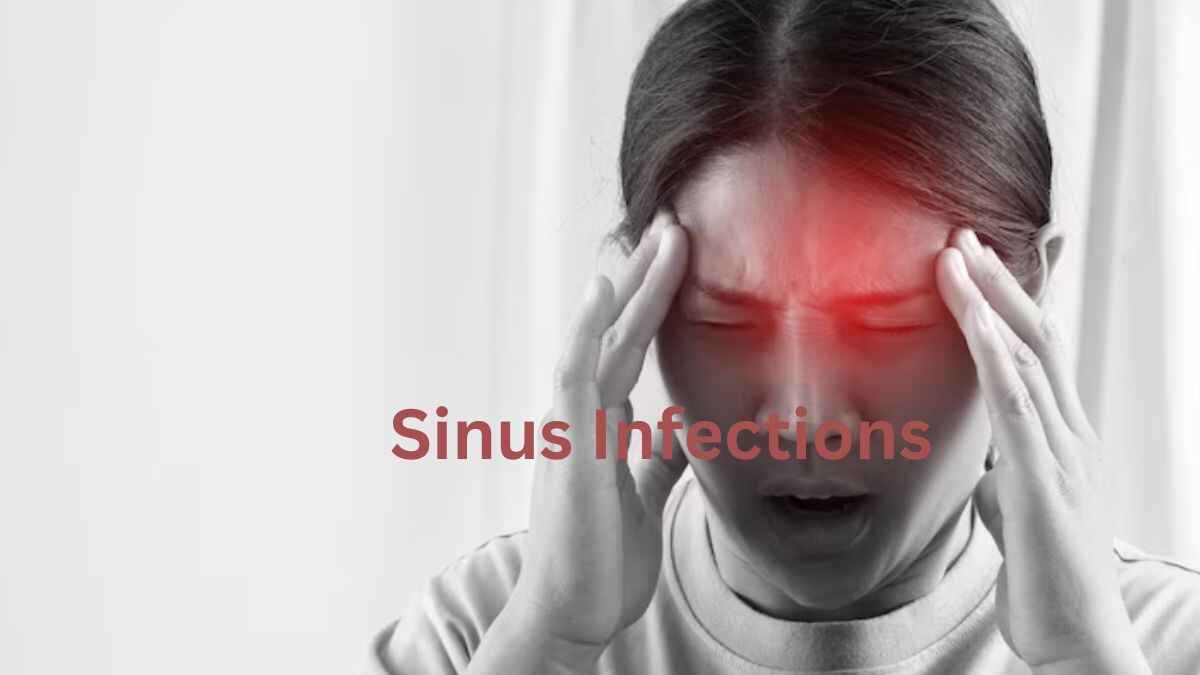Are Sinus Infections Contagious ? is crucial for individuals seeking to protect themselves and others from the spread of illness. Sinus infections, also known as sinusitis, refer to the inflammation or swelling of the tissue lining the sinuses. These hollow cavities are located in the skull, surrounding the nose and eyes, and play a vital role in air circulation and mucus production.
Types of Sinus Infections
- Acute Sinusitis: Short-term inflammation usually caused by a bacterial infection, lasting less than four weeks.
- Chronic Sinusitis: Persistent inflammation lasting more than twelve weeks, often due to underlying conditions or recurring infections.
Causes of Sinus Infections
Understanding the underlying causes of sinusitis can help individuals take preventive measures to reduce the risk of developing this uncomfortable condition.
Common Causes
- Viral Infections: The common cold and influenza viruses are frequent culprits behind acute sinusitis.
- Bacterial Infections: Bacteria such as Streptococcus pneumoniae and Haemophilus influenzae can cause acute bacterial sinusitis.
- Allergies: Seasonal allergies or allergic reactions to pollutants can trigger inflammation in the sinuses.
- Nasal Polyps: Noncancerous growths in the nasal passages can obstruct airflow and lead to chronic sinusitis.
- Deviated Septum: A structural abnormality in the nasal cavity can disrupt proper drainage, contributing to sinus infections.
Symptoms of Sinus Infections
Recognizing the symptoms of sinusitis is essential for prompt diagnosis and treatment.
Common Symptoms
- Facial Pain and Pressure: Discomfort or tenderness around the eyes, nose, and forehead.
- Nasal Congestion: Difficulty breathing through the nose due to blockage or swelling.
- Thick Nasal Discharge: Yellow or green mucus may indicate a bacterial infection.
- Coughing: Postnasal drip can lead to a persistent cough, especially at night.
- Headache: Dull or throbbing pain often worsens with sudden movements or changes in pressure.
Diagnosis and Treatment
Consulting a healthcare professional is crucial for accurate diagnosis and appropriate treatment of sinus infections.
Diagnostic Methods
- Physical Examination: A thorough examination of the nasal passages and sinuses.
- Imaging Tests: X-rays or CT scans may be used to visualize the sinuses and identify any abnormalities.
- Nasal Endoscopy: A flexible tube with a camera is inserted into the nasal passages for a detailed inspection.
Treatment Options
- Antibiotics: Prescribed for bacterial sinus infections to eliminate the underlying infection.
- Decongestants: Over-the-counter medications can help alleviate nasal congestion and promote drainage.
- Nasal Sprays: Steroid nasal sprays reduce inflammation and improve airflow.
- Saline Irrigation: Rinsing the nasal passages with saline solution can flush out mucus and irritants.
- Surgery: In severe cases or when other treatments fail, surgery may be recommended to remove nasal polyps or correct structural abnormalities.
Are Sinus Infections Contagious?
The contagiousness of sinus infections depends on the underlying cause and the stage of the illness.
Viral Sinus Infections
Most cases of acute sinusitis are caused by highly contagious viral infections. These viruses spread through respiratory droplets when an infected person coughs or sneezes. Therefore, individuals with viral sinusitis should take precautions to prevent the spread of illness, such as practicing good hand hygiene and avoiding close contact with others.
Bacterial Sinus Infections
Acute bacterial sinusitis can develop as a secondary infection following a viral illness, but it is not typically contagious in itself. However, the bacteria responsible for sinus infections can be transmitted through close contact, especially in households or crowded environments. It is essential to seek medical treatment promptly and follow prescribed antibiotics to prevent the spread of bacterial sinus infections.
Preventive Measures
To reduce the risk of spreading sinus infections, individuals should:
- Practice good hand hygiene, especially during cold and flu seasons.
- Cover their mouth and nose when coughing or sneezing.
- Avoid close contact with individuals who are sick.
- Disinfect frequently touched surfaces in the home or workplace.
Conclusion
While sinus infections can be uncomfortable and disruptive, understanding their contagious nature is essential for effective prevention and management. By recognizing the symptoms, seeking prompt medical attention, and taking preventive measures, individuals can minimize the spread of sinusitis and protect their health and the well-being of others.
Read More: Boost Memory Retention with Alevemente Your tangible Potential
FAQs (Frequently Asked Questions)
Can sinus infections be transmitted through casual contact?
No, sinus infections are typically spread through respiratory droplets and direct contact with infected individuals rather than casual contact.
Is it safe to be around someone with a sinus infection?
As long as proper hygiene practices are followed, being around someone with a sinus infection is generally safe. However, individuals should avoid close contact if possible, especially if the infected person is actively coughing or sneezing.
Can sinus infections lead to complications?
In some cases, untreated sinus infections can lead to complications such as chronic sinusitis, meningitis, or abscesses. Prompt medical treatment is essential to prevent such complications.
Are children more susceptible to sinus infections?
Children are more prone to sinus infections due to their smaller nasal passages and developing immune systems. However, sinus infections can occur at any age.
Can sinus infections be prevented? While it may not be possible to prevent sinus infections entirely, individuals can reduce their risk by practicing good hygiene, avoiding known allergens, and seeking prompt treatment for respiratory infections.





